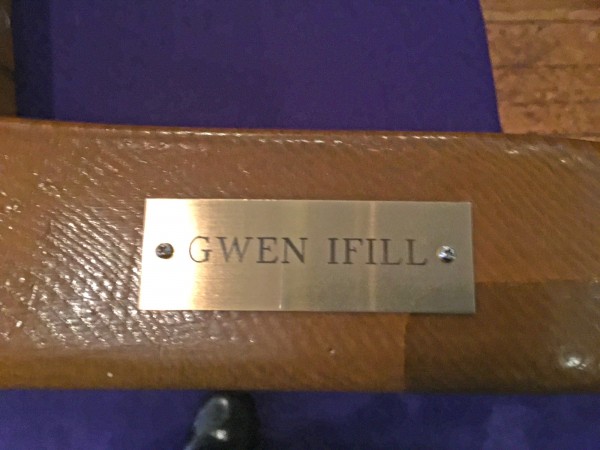Every few generations, there comes an event that, for better or worse, transcends the ordinary and is written, indelibly, in our hearts and minds. At such times, our entire society – sometimes even the whole world – is transfixed, either in horror or in joy, by the singular power and clarity of the moment.
Nov. 4, 2008, was one of those moments.
Consider the pivotal events of our times. Sept. 11, 2001. The fall of the Berlin Wall. The moon landing. The March on Washington. The deaths of Dr. King, and of the Kennedy brothers. Going back further – the end of the Second World War, or the attack on Pearl Harbor. They are the moments that define our times, the events that, by their sheer cultural mass, cause us to re-evaluate our place in the world. They form the lens through which we view everything that comes after.
For better or worse, everyone who lived through those moments remembers exactly where he or she was, exactly what he or she was doing. So brightly are they seared in our memories that without much effort, it is easy to summon the feeling of elation, or of dread, that accompanied them.
Nov. 4, 2008, was one of those moments.
Unlike, say, being German, African, or Japanese, being an American has always been more about an idea than about where your ancestors came from or what your last name might be. Being an American means that you can be judged not by what family or social class you're born into, but by what you say and accomplish. Being an American means that you are bound only by the limits you place on yourself.
Or so we have been told, generation after generation. There are those of us, however, who know from experience that the idea of being an American is something that hasn't always been extended to everyone. There are those of us who remember a time when the difference between marginalized Americans and "real" Americans was as plain as the "Whites Only" sign above the door. Tragically, there are many of us who feel that difference still.
It could be said with some accuracy that one of the central narratives of the American experience is the struggle to live up to the transcendent ideals enshrined by the Founders, to ensure that the idea of being American applies equally to everyone. And to our credit, we have waged that struggle unrelentingly. With each passing generation, the circle of equals has grown. We abolished slavery and banished Jim Crow. We extended the right to vote to all adult Americans, regardless of race, creed, color, or gender. We have actively worked to elevate people from non-mainstream communities into the realms of business, government, and education.
But as clearly as we can see the progress we have made, we can just as plainly see the work that remains to be done. Women still earn less than men for doing the same work. People of color are still overrepresented in our prisons, underrepresented in our boardrooms, and more likely to drop out of school. A vast underclass still labors, sometimes illegally, at the jobs that "real" Americans won't do. Too much wealth is still concentrated in the hands that have controlled it for centuries.
Sometimes, though, a moment comes along where the scales drop from our collective eyes and we see just how close at hand Dr. King's dream really is. The blood, toil, tears, and sweat sacrificed by generations past and present are suddenly redeemed, and it is revealed to us, in blinding synchronicity, how far we have come.
Nov. 4, 2008, was one of those moments.
We, the American people, have elected a president named Barack Hussein Obama! Think of it! A man from humble beginnings, the son of a Black father from Kenya and a White mother from Kansas, has taken his place among the great. A man who his entire life embraced education and hard work as the foundation of his success. A man who, through his own merit and enterprise, rose to attend Harvard Law — where he was named president of The Harvard Law Review — assumed a prestigious professorship, and ran successfully for state and national government.
A man who endured the bile and vitriol of an embittered, declining racist establishment, who was shamefully called a terrorist, whose character was subjected to every imaginable smear – his middle name is Hussein! – ascended to the White House on the shoulders of his fellow Americans.
His fellow Americans – all of us, together.
Nov. 4, 2008, was one of those moments, and the joy of it shows no sign of fading.
Algie C. Gatewood, Ed.D., is president of Portland Community College's Cascade Campus.






















































































































































































































































































































